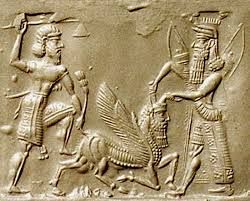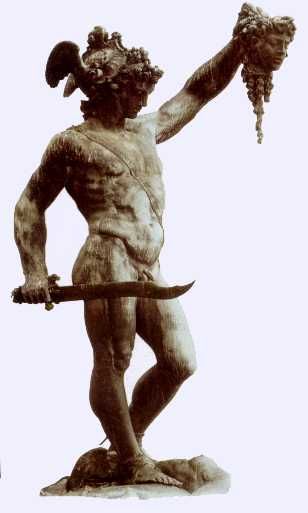Marvel announced this week that as part of its "All New, All Different," post-Secret Wars lineup, a new Hercules series will debut from writer Dan Abnett and artist Luke Ross. That's awesome for many reasons, not the least of which is because Ross will set the tone, for sure, as his art has a clean, classic style that wouldn't be out of place on a major title, as evidenced by his work on Captain America.
However, there's a rhythm to his storytelling that goes beyond just choreographing big fight scenes and powerful figures. He can do everything form subtle humor to weightier emotional beats that tell me, even from the initial design work, that this title is going to be a different kind of Herc than we've seen before. Gone is the little Grecian wrap around the waist as Ross has updated the demigod.
However, that cocky smile remains.
Abnett said as much in an interview with Comic Book Resources, talking of Hercules in terms of a sports hero reattaining his greatness after coasting on laurels and fame for too long. Herc is going back to his roots as a hunter and adventurer, with Abnett going so far as to refer to him as "the first superhero":
"Absolutely. I immediately went away and thought about Hercules the mythological character and immediately realized that his legend goes back to a time before he was even called Hercules. It's an incredibly ancient myth that probably even predates written language that's appeared in many cultures. Heracles is his most famous incarnation, but he's kind of this archetype and I was suddenly struck with this idea that it's almost like he's the first super hero. He's an extraordinary hero who's enormously capable, beloved by the gods, and will do anything to protect and look after you if he's on your side. He's also capable though of enormous foolishness, violent rage, and terrible decision making."
I just so happen to live with a history teacher and self-professed mythology aficionado, and so a conversation broke out over Abnett's realization: Was Hercules the first superhero?
Short answer: No, not really. If we're looking at the idea of a man with superhuman abilities who performs great acts, we'd have to go back to Gilgamesh (also name-dropped in Abnett's interview). He was a man of enormous power who used them selfishly until the gods sent down a foil for him, Enkidu the "wild man." They have a misunderstanding, fight, and then become good friends, until Enkidu is struck down and Gilgamesh goes on an adventure to learn how to be the king he should have been in the first place. A pretty epic tale, but I'm not really sure it's a superhero's journey.
The dictionary comes to the rescue to define "supehero" as a benevolent fictional character with superhuman abilities, and even offers Superman as the first example. The Man of Steel is, by default, good and has incredible powers above the mortal man, but I think Marvel has taught me to want more than that from the title.
Superheroes are active: They don't get to be a hero by simply defining goodness; they have to go out and perform those good acts on a regular basis. As Ms. Marvel said it best: "Good is not something you are, it's something you do." The very best heroes have to learn this or some other moral value in attaining their status. Beowulf was a superhero, and an Anglo-Saxon example of what a warrior was supposed to be. He was a tale told to guide future heroes on the right conduct. Superman is kind of the same way, in so much as he's this incredible yardstick by which all other heroes are measured. Heck, he's in the dictionary definition of superhero -- he's as superhero as superheroes get. As a Marvel reader, however, I demand more.
The very best Marvel heroes, the ones that transcend the comic page into TV shows and movies and tTshirts and the collective consciousness , strive to fit that definition. Being benevolent is an active choice; Tony Stark didn't start out that way, but works to achieve that goodness out of his past mistakes. Marvel heroes have feet of clay and don't come out of the box in perfect harmony with their superheroic title: Superman is good, but Spider-Man has a responsibility to be good. All of the Avengers have personal failings and work to move past them to be superheroes, and their internal conflicts are what we crave. The best Marvel heroes fail because we relate to failure. We aspire to be better, and we read the adventures of those capable of doing so. We learn through parable, the best tales of heroism teaching us something about ourselves in the process.
The Marvel Universe is Greek mythology. From Jason and the Argonauts to Achilles on the field of battle, these are mortals given gifts by the gods to perform feats of strength and cunning. They adventure and achieve, despite (or because of) the machinations of the gods. Each one is sewn together with heroism and emotion, and it's the latter that propels the reader through the former. When the heroes of legend fail, we are there to learn something about ourselves. They teach us less about how to defeat the Medusa and more about how to rely on our own wits and the tools we have to overcome the odds and win the day.
Hercules might not be the "first" superhero, but there is a mighty Marvel style in his story that predates Stan the Man and King Kirby, and I'm glad to see we'll be returning to his adventures in not necessarily all-new, but all-different way.



